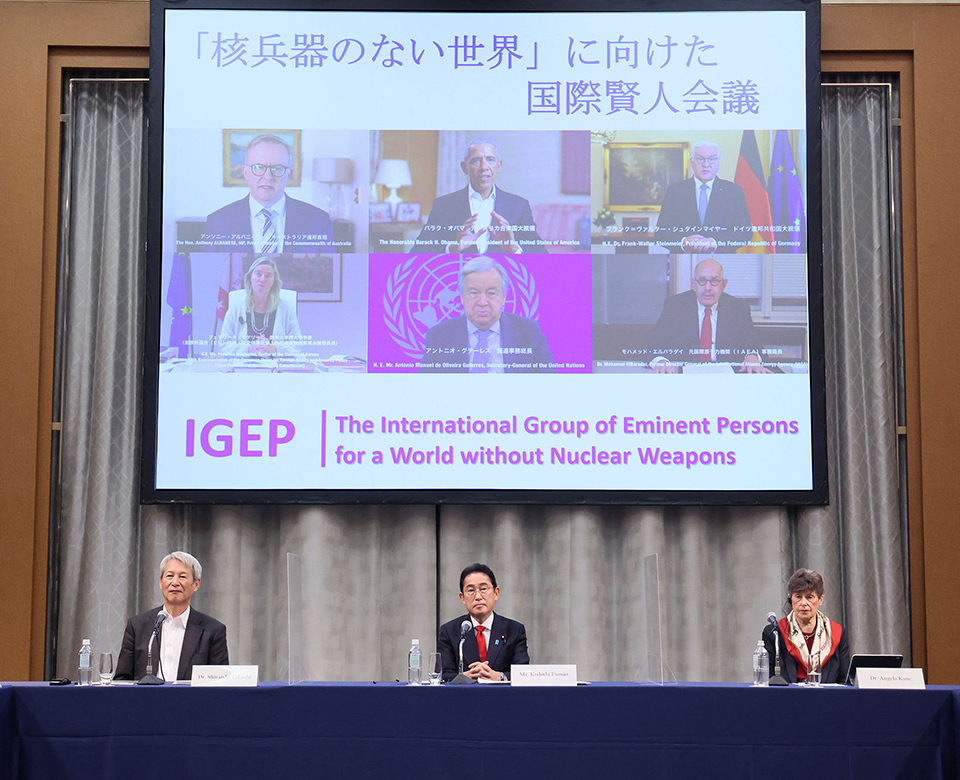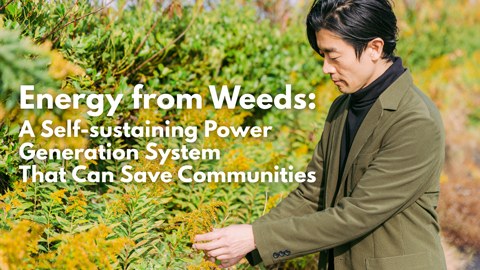DECEMBER 10, 2022
The International Group of Eminent Persons for a World without Nuclear Weapons was established in response to Prime Minister Kishida’s announcement, in a policy speech in January 2022, of the launch of a venue for free and vigorous discussion. Experts from both nuclear-weapon and non-nuclear-weapon states participated in the meeting, and messages were delivered by such political leaders as former U.S. President Barack Obama and UN Secretary-General António Guterres.
On December 10 and 11, 2022, the first meeting of the International Group of Eminent Persons for a World without Nuclear Weapons was held in Hiroshima. The members analyzed the current international situation and security environment surrounding nuclear disarmament, while also having candid discussions regarding challenges in promoting nuclear disarmament, priorities on the nuclear disarmament front, and how to advance future discussions.
Prime Minister KISHIDA Fumio delivered the following address at the opening session of the meeting, and attended the closing session after being briefed by the members on their talks. He stated that the Japanese government would deepen discussions aimed at enabling the upcoming Group of Seven (G7) Summit in Hiroshima—to be held in May 2023—to send a strong message toward a world without nuclear weapons, and would also take realistic and practical steps in line with the “Hiroshima Action Plan.”
The meeting was closed with an agreement to hold two meetings in 2023.
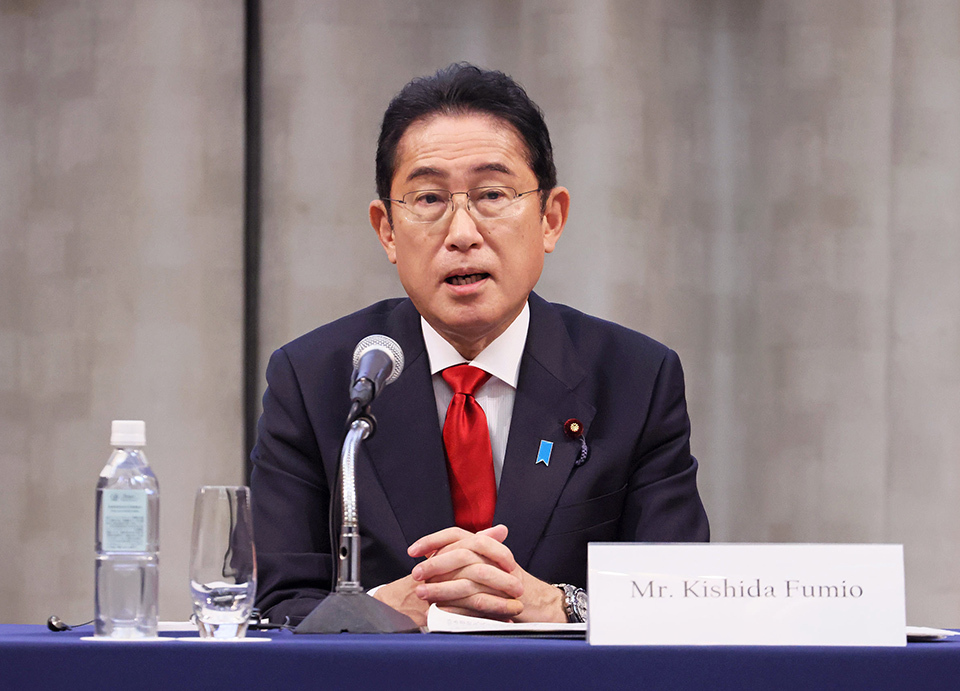
I would like to thank all distinguished participants for gathering here today for the first meeting of the International Group of Eminent Persons for a World without Nuclear Weapons (IGEP). It is my great pleasure to welcome you all in my hometown of Hiroshima.
We must take the path toward a “world without nuclear weapons,” however difficult it may be. This is the strong aspiration, not only of Hiroshima and Nagasaki, but also of Japan, the only country to have suffered atomic bombings during war. It is also my strong personal, as well as Japan’s determination as the chair of the G7 Summit meeting here in Hiroshima next May.
The post-Cold War era has come to an end and we are now at a historic turning point. The global security environment has become increasingly severe. The threat of the use of nuclear weapons is higher than at any time since the height of the Cold War. Russia’s nuclear threat during its aggression against Ukraine is absolutely unacceptable, let alone their actual use. It has also been pointed out that North Korea may conduct another nuclear test.
The harsh reality surrounding nuclear disarmament continues to loom over us, or rather, looms even higher and larger than before. Coupled with the increasing complexity of the international security environment and the rapid development of emerging technologies, the division among States in their positions and views on this matter is becoming increasingly pronounced. There is even no clear path for dialogue.
Even in the face of this harsh reality, I have continued my efforts to build international momentum for nuclear disarmament once again since assuming office as Prime Minister. In August, I attended the NPT Review Conference for the first time as Prime Minister of Japan based on my belief that maintaining and strengthening the NPT is the only realistic path forward. At the meeting, I announced the “Hiroshima Action Plan.” Unfortunately, despite the hard work of Ambassador Zlauvinen as the President, the conference did not achieve the outcome we had hoped for. However, we believe that the draft final outcome document, which was prepared after serious discussions among the Parties, will serve as a foundation for the international community to make future progress on nuclear disarmament.
We don’t have the luxury to stand still. Mindful of the G7 Hiroshima Summit next year, Japan intends to take realistic and practical steps forward in accordance with the “Hiroshima Action Plan.”
During my time as Foreign Minister, I organized the “Group of Eminent Persons for Substantive Advancement of Nuclear Disarmament” with the participation of experts from various positions, including nuclear-weapon states and non-nuclear-weapon states. The group presented valuable recommendations including the identification of issues that needed to be squarely dealt with to realize nuclear disarmament, measures to resolve such issues that governments and civil society should take, and the importance of civility in discourse.
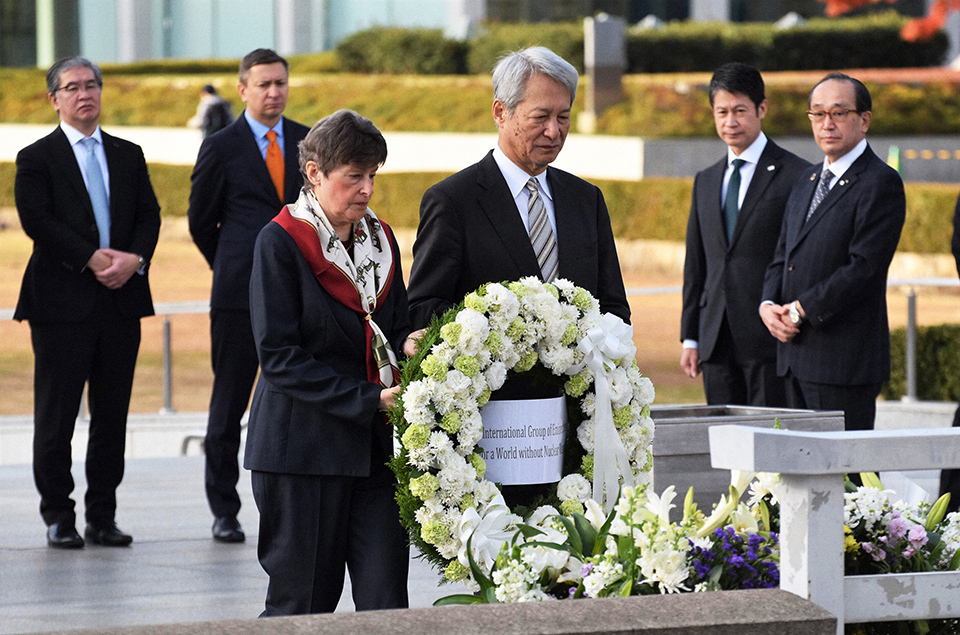
On the second day of the session, the participants visited the Hiroshima Peace Memorial Museum and left flowers of tribute on the Cenotaph for the Atomic Bomb Victims. THE MAINICHI NEWSPAPERS
The newly appointed 15 IGEP members are all experts in the field of nuclear disarmament who have great passion, deep knowledge, and the wisdom to foresee the future. I would like to express my sincere gratitude to all of the members in their acceptance to take this role. In particular, I would like to thank Professor Shiraishi for again serving as the chair.
I look forward to a free and robust discussion among members. I have high hopes that this group will produce ideas, the way forward and accompanying concrete measures on what governments, civil society, and the international community as a whole consider and act on to move closer to the ideal, while simultaneously taking into account the harsh realities, need to maintain and strengthen NPT to which both nuclear and non-nuclear states are parties, and the 11th NPT review conference planned to be held in 2026.
I sincerely hope that today’s first meeting will be an important step in building international momentum toward a “world without nuclear weapons” and in building on our tireless efforts toward the ideal. I would also like to reiterate my pledge to continue holding the torch aloft, strong and high, together with all of you, to find a path to leading from the harsh reality to the ideal.
Thank you for your kind attention.
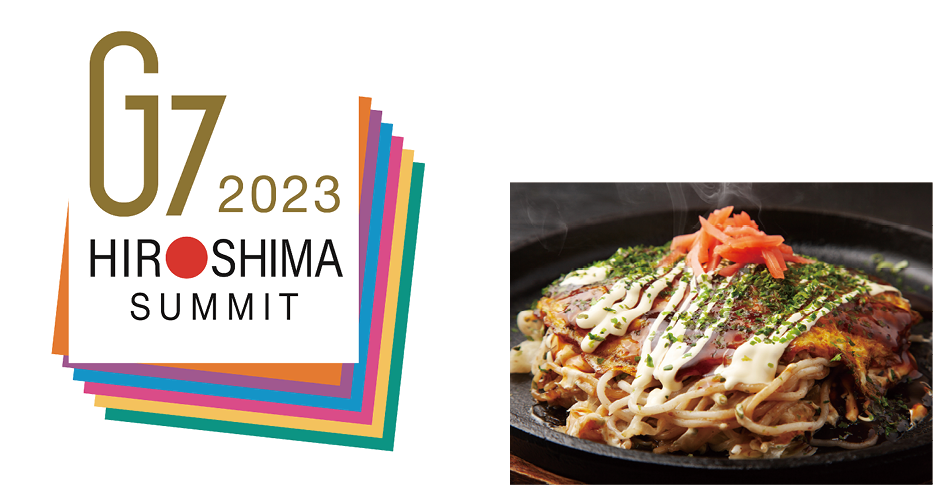
The G7 Hiroshima Summit will be held from May 19 to 21, 2023. Taking origami (paper folding), something quintessentially Japanese, as its motif, and linking the “G” in “G7” to a paper clip, the logo expresses the G7’s cohesion and sense of unity in working towards world peace. Hiroshima is the hometown of Prime Minister Kishida, and the local specialty of okonomiyaki (a savory Japanese pancake composed of wheat batter and several other ingredients) is one of his favorite dishes. A local project is underway to develop unique okonomiyaki menus matching the various food cultures of each G7 country.
* The above speech was republished from the website of the Prime Minister’s Office of Japan:
https://japan.kantei.go.jp/101_kishida/statement/202212/_00003.html
Read about the second meeting of the International Group of Eminent Persons for a World without Nuclear Weapons (IGEP), held in Tokyo in April 2023.
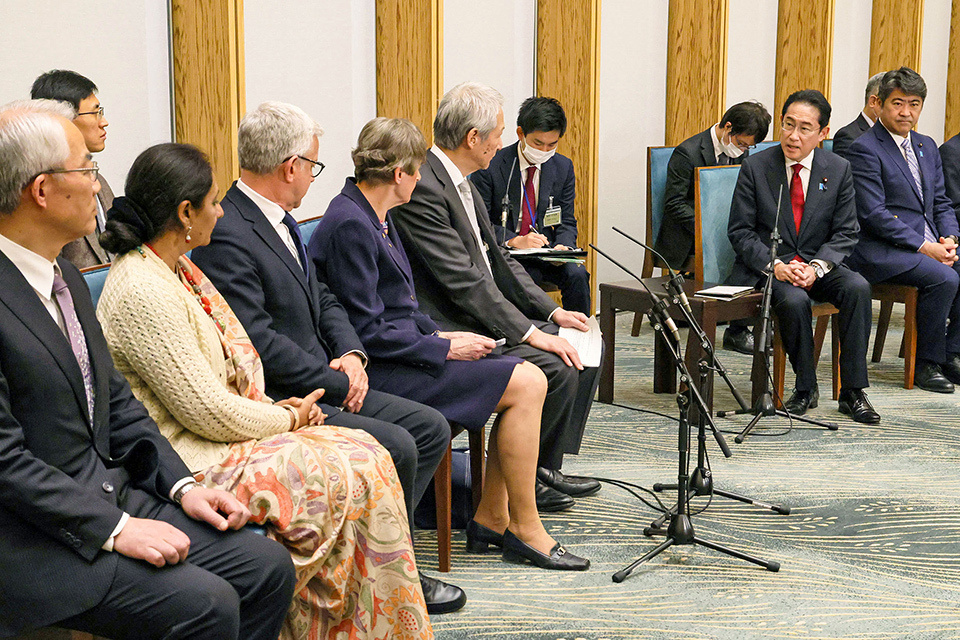
Taking Practical Steps for Achieving a World Without Nuclear Weapons


























